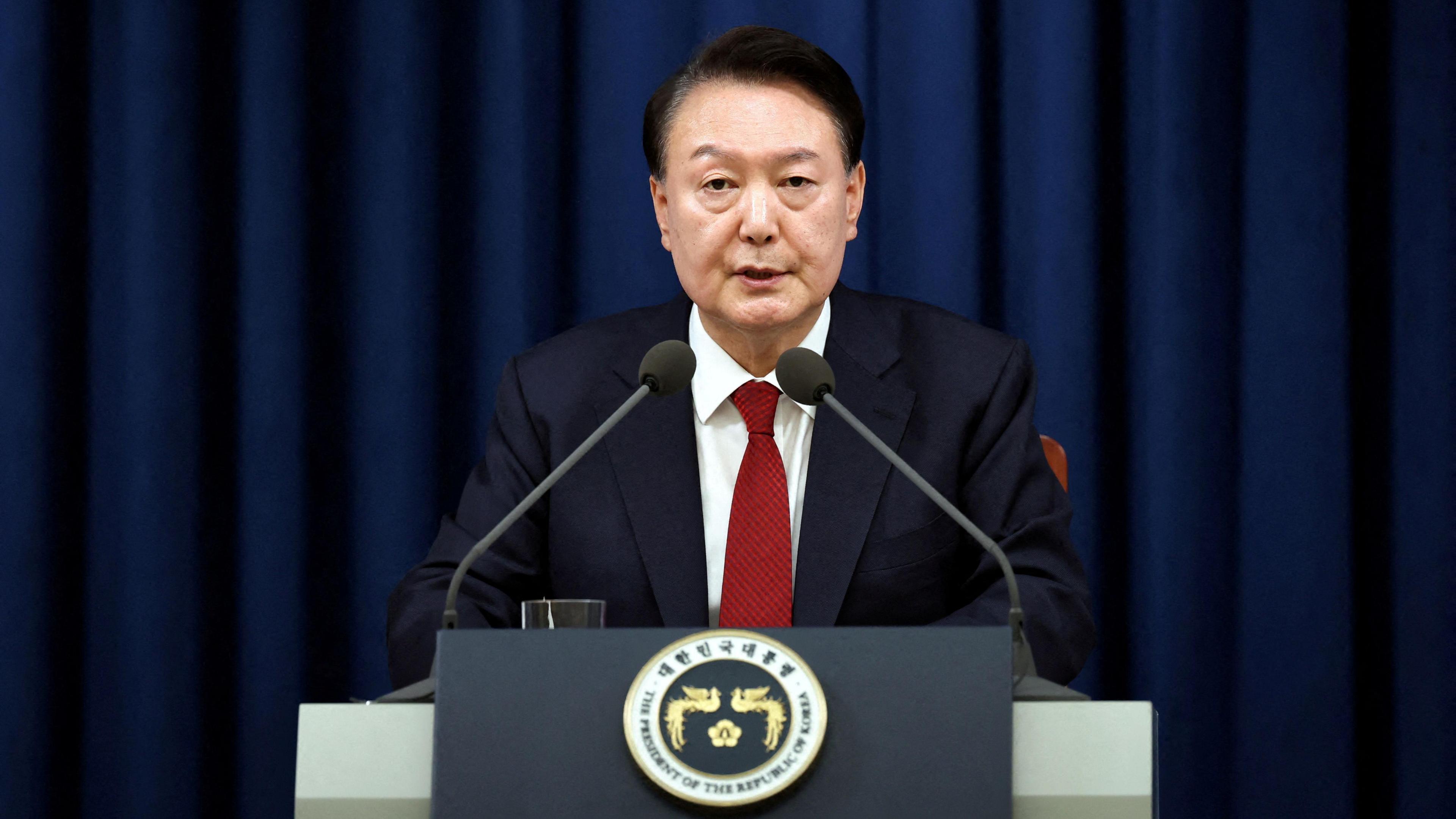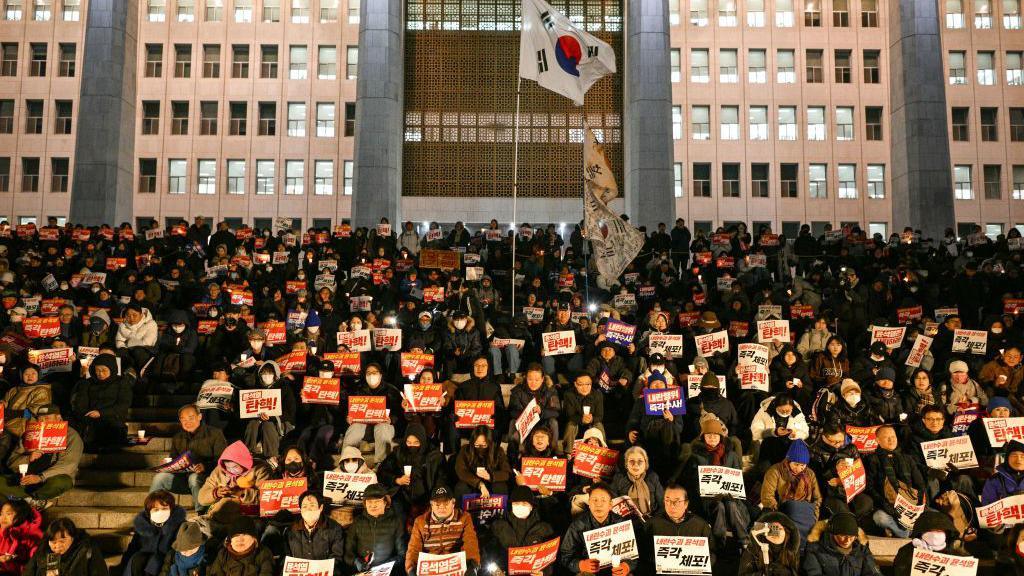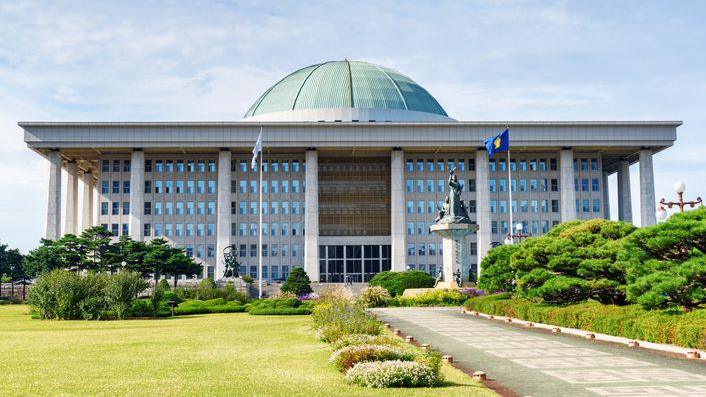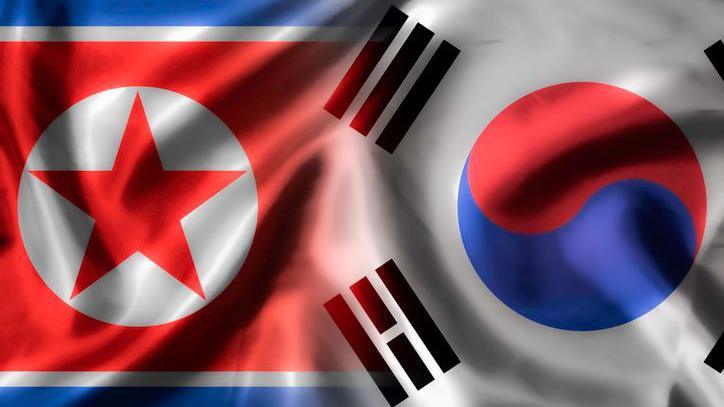What is happening in South Korea?
The South Korean president Yoon Suk Yeol is facing growing pressure to leave his job.
- Published
The South Korean president Yoon Suk Yeol is facing growing pressure to leave his job.
It comes after he shocked the country on Tuesday by announcing martial law.
This means he wanted to run the country in a different way, which challenged the country's democracy.
However, MPs in South Korea disagreed with him and voted to block the move.
This eventually led to the president announcing a few hours later that he was changing his decision back.
As a result, MPs have called for a vote to impeach him which, if passed, will mean he has to resign.
- Published12 July 2019
- Published19 December 2019
- Published15 September 2023
What is martial law and why was it declared?

South Korean president Yoon Suk Yeol addressed the nation on Tuesday evening
South Korea is known for its great food, skincare, and huge K-pop bands.
The Asian country is also known for its democracy in the region - with fair elections, freedom of speech and peaceful transfers of power.
Democracy means 'rule by the people'.
In a democracy, like the UK, people that live there have a say on how they feel about how it is run.
It's important as it not only maintains law and order, but it also provides freedom of speech and helps achieve equality.
That's why it came as a shock when, in a late night TV broadcast on Tuesday, President Yoon Suk Yeol declared martial law in the Asian democracy for the first time in nearly 50 years.
Martial law means giving the military extra powers and temporary control over running a country.
This is usually reserved for times of emergency, such as during wars or after natural disasters.

Thousands of people took to the streets in Seoul to protest against martial law
Yoon said he had no choice but to resort to martial law in order to protect South Korea from "North Korea's communist forces" and to "eliminate anti-state elements".
However, it soon became clear that was not the case and it had not been caused by threats.
Instead, he was trying to get a grip on power after facing his own political troubles.
The surprise announcement led to thousands of people gathering outside the parliament building in the country's capital, Seoul. They protested through the night against his decision.
MPs also rushed there to push through an emergency vote to remove the measure.
190 of the 300 members of parliament were present for the vote, and every single one voted for martial law to be lifted.
A few hours later, President Yoon accepted the parliament's vote and lifted the martial law order.
Many people view this week's events as the biggest challenge to South Korea's democratic society in recent history.
Now, lawmakers in the country will decide whether to impeach President Yoon as a result of his actions.
What does impeachment mean and what will happen next in South Korea?

The process of impeachment begins in South Korea's parliament - the National Assembly
Impeachment is the process of bringing charges against an official for wrongdoing in office, and if it passes, President Yoon will lose his job.
In South Korea, the process is relatively straightforward.
To do so, two-thirds of South Korea's 300-member parliament must vote in favour to impeach President Yoon - that means at least 200 votes.
Once the impeachment is approved in Parliament, the Constitutional Court of Korea then has the final say.
If it doesn't agree with the impeachment, then President Yoon can keep his job and stay in office.
But if it approves the impeachment, President Yoon will be removed and an election must be held within 60 days to decide who will get his job.
South Korea's prime minister would become acting president until a new president is chosen.
Why is there a North Korea and a South Korea?

Korea used to be one country but was divided after the Second World War. It had been ruled by Japan, but when Japan surrendered, forces from the Soviet Union occupied the north of the country while US forces occupied the south.
The Soviets supported a system of rule called communism, while the US was anti-communist. It meant the two sides could not agree on how to unite the country, so it was formally divided into North Korea and South Korea on 9 September 1948.
The political differences between the two rival states led to the outbreak of war in 1950, when North Korea invaded South Korea.
The war lasted three years, but North Korea and South Korea have officially remained at war because a peace treaty was never signed.
